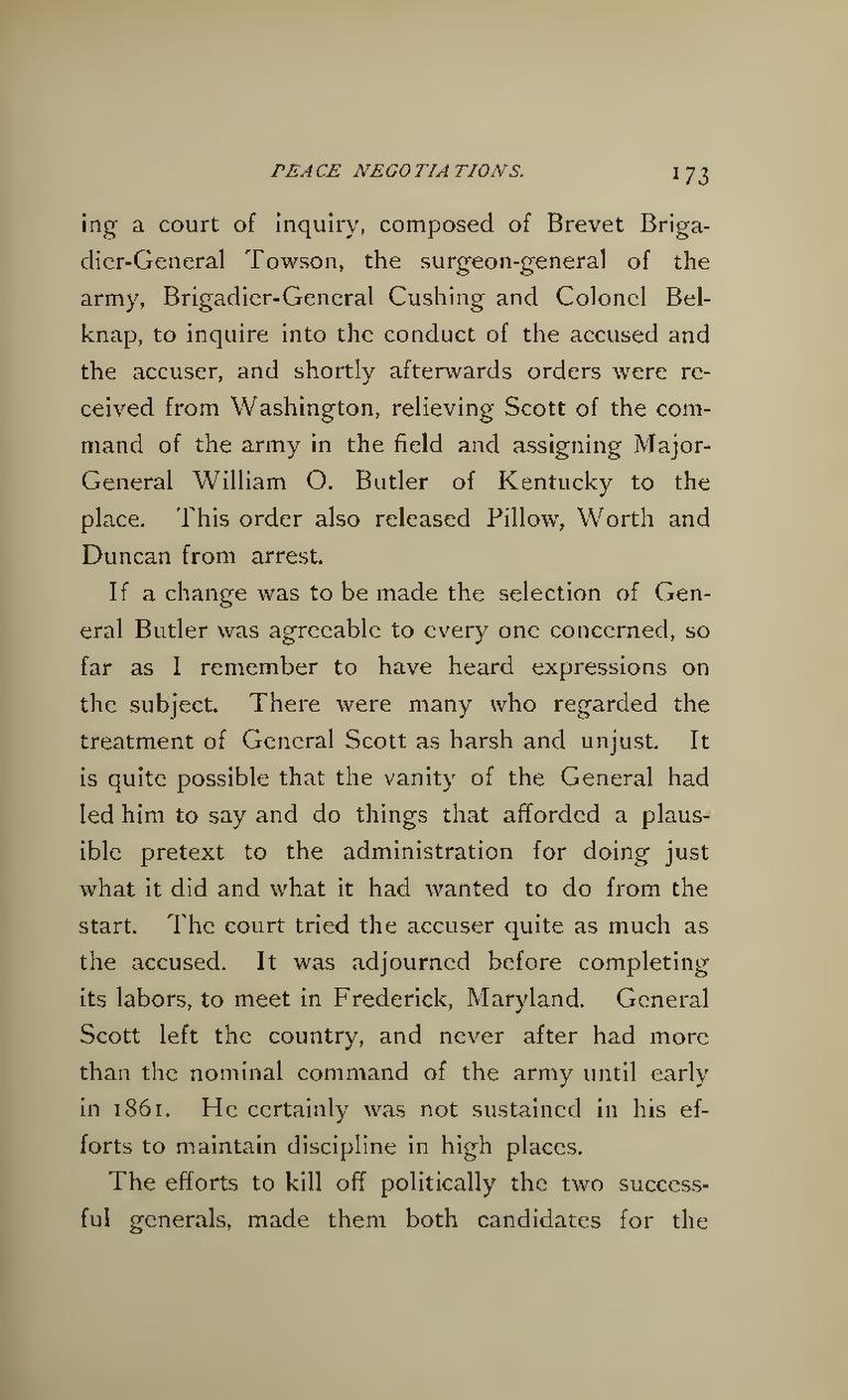ing a court of inquiry, composed of Brevet Brigadier-General Towson, the paymaster-general of the army, Brigadier-General Cushing and Colonel Belknap, to inquire into the conduct of the accused and the accuser, and shortly afterwards orders were received from Washington, relieving Scott of the command of the army in the field and assigning Major-General William O. Butler of Kentucky to the place. This order also released Pillow, Worth and Duncan from arrest.
If a change was to be made the selection of General Butler was agreeable to every one concerned, so far as I remember to have heard expressions on the subject. There were many who regarded the treatment of General Scott as harsh and unjust. It is quite possible that the vanity of the General had led him to say and do things that afforded a plausible pretext to the administration for doing just what it did and what it had wanted to do from the start. The court tried the accuser quite as much as the accused. It was adjourned before completing its labors, to meet in Frederick, Maryland. General Scott left the country, and never after had more than the nominal command of the army until early in 1861. He certainly was not sustained in his efforts to maintain discipline in high places.
The efforts to kill off politically the two successful generals, made them both candidates for
